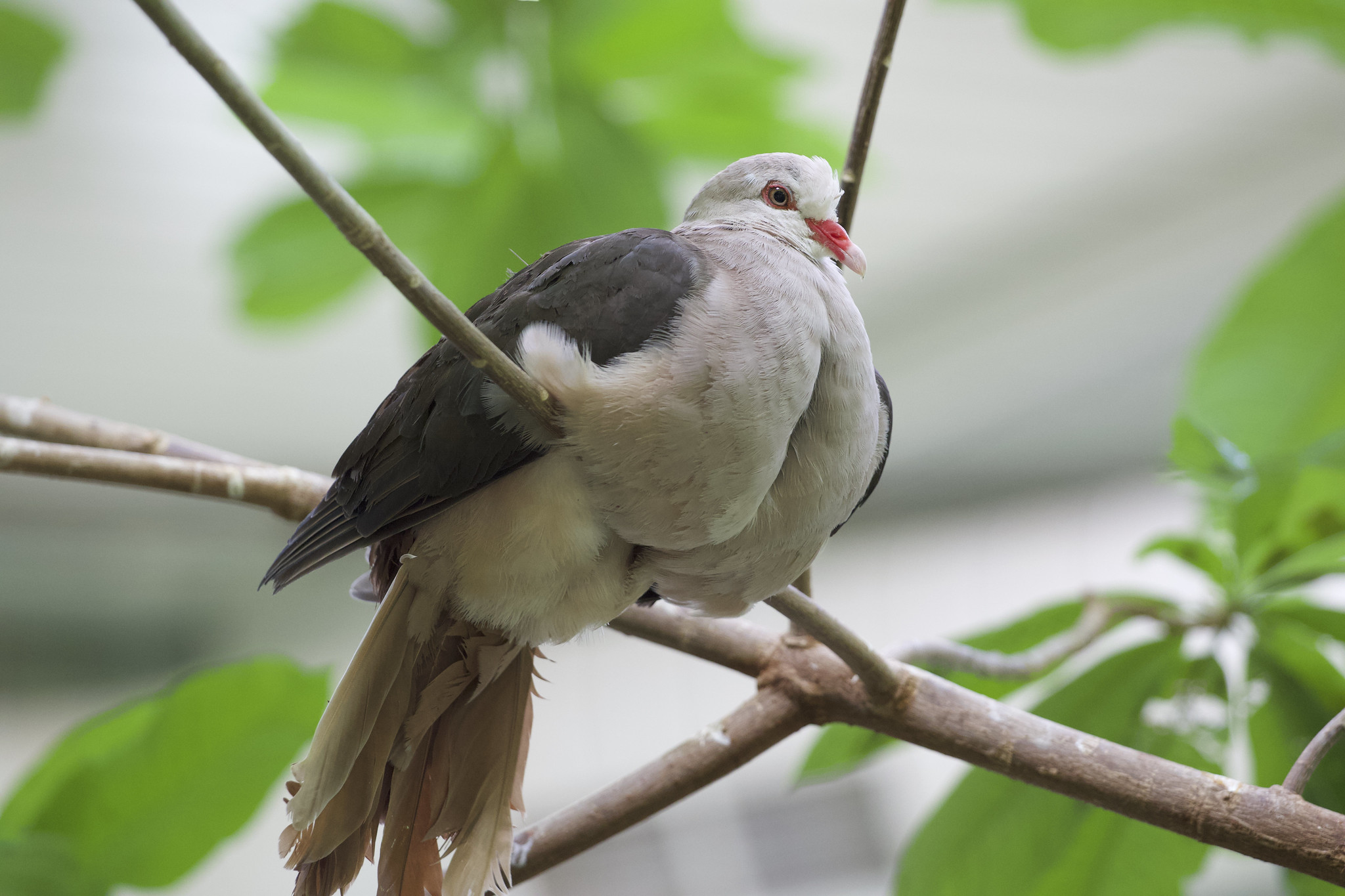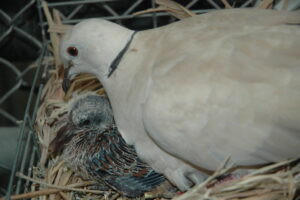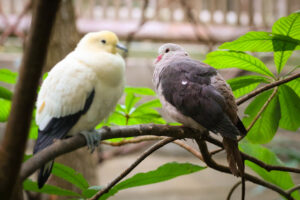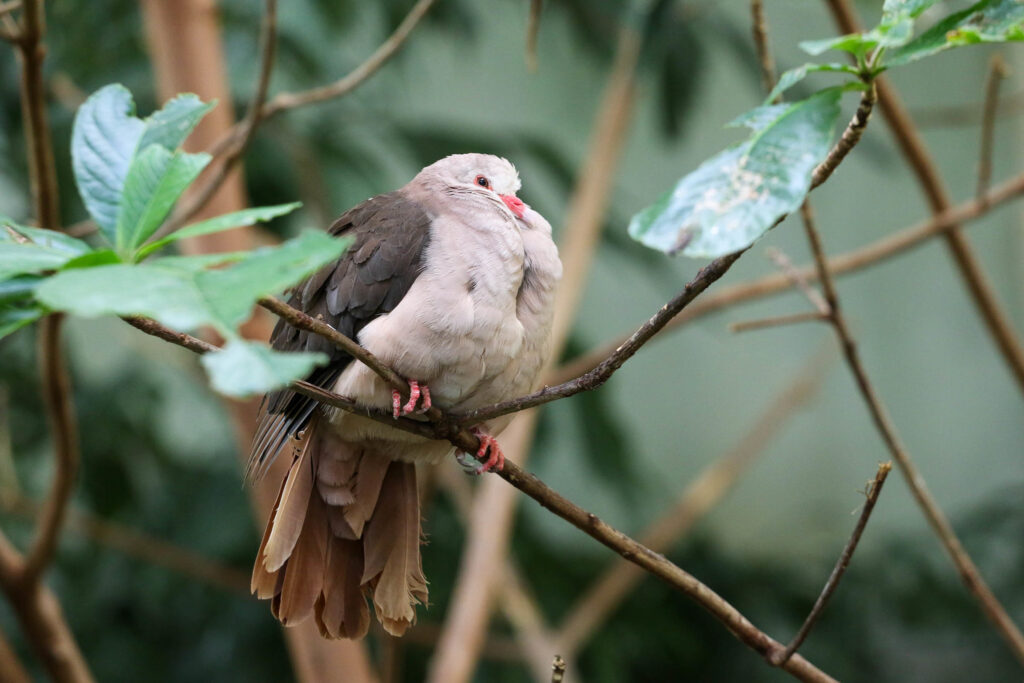Celebrating the Life of our Pink Pigeon

We are saddened to announce the passing of our beloved Pink Pigeon, affectionately known as “Pink.” Though saying goodbye is never easy, we are honored to celebrate her legacy.

At 26 years old, Pink was significant in being the oldest Pink Pigeon in human care. She hatched on September 4, 1998 at the Bronx Zoo. Like many of her species raised in human care, Pink was foster-reared by Ring-necked Doves. This arrangement provides a more controlled and supportive environment for rearing, which is especially important given the species’ rarity.
Pink joined us at Tracy Aviary in June, 1999, at the time of her arrival, the Pink Pigeon was considered the rarest pigeon in the world. In 1990 fewer than 10 Pink Pigeons remained in the wild. The factors contributing to their original decline (predators, natural food shortages, diseases, habitat degradation) still exist in Mauritius, although these are mitigated by management, such as the control of introduced mammalian predators, supplementary feeding, disease management, captive breeding and reintroduction, as well as protection and habitat restoration.


Throughout her life, Pink played a vital role in contributing to the population of Pink Pigeons in human care. She laid numerous eggs throughout her life. Following traditions and best practices, Ring-necked doves raised her offspring. They successfully reared 13 chicks during her egg laying years.
As Pink entered her senior years, plans were made for her retirement. After discussions with the Species Survival Plan, it was decided that her wellbeing was better suited staying at Tracy Aviary instead of traveling. She would live out the rest of her life in the Treasures of the Rainforest Exhibit.

In preparing for her moving to the new exhibit, there was concern that the large exhibit would be too stressful for her or she would have a problem navigating the space. After much discussion with the bird care staff, it was decided to give her a try. She was the first bird to be moved to the exhibit and immediately began flying the space and interacting with natural plantings. She quickly established herself as the leader of the “roost” and was often observed displacing birds bigger and smaller than her if they landed in a place that she felt was her own.
Thanks to dedicated conservation efforts, and awareness raised by birds such as Pink, the Pink Pigeon is no longer listed as endangered. Today, there are approximately 600 individuals in the wild and 83 in human care across 21 facilities.
If you would like to learn more about ongoing conservation initiatives, please visit:
